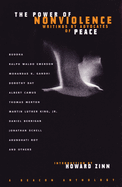I was sitting in a class on how to build support for making social change, and one of the discussions we had is a comparison of the differences between the civil rights era environment and today’s civic environment. This made my mind leap into making a list of a score of dozen ways to be an empowered citizen and an empowered consumer.
Writing this post, I realized that this list is a micro version of Gandhi’s Constructive Program. In the period between civil Disobedience Campaigns, Gandhi kept his followers engaged and progressing by building a sustainable community-based economy to replace the imperial system which oppressed them.

- Buy local, organic, and fair trade.
- Move your money to a credit union.
- Drink more water, but not bottled.
- Have a car-less day.
- Throw out your TV.
- Grow a garden.
- Share hand-me-downs.
- Use your library.
- Support local arts.
- Make your own music.
- Support local and independent media.
- Only donate to nonprofits where you know how the money is being used.
- Only support candidates and political parties who don’t take corporate donations.
- Teach people how to write-in on the ballot when they don’t like the choice of candidates.
- Cook family meals at home.
- Oppose war.
- Oppose insurance companies and support single payer health insurance
- Spend less
- Barter
- Join a CSA {Community Supported Agriculture].
Related articles










